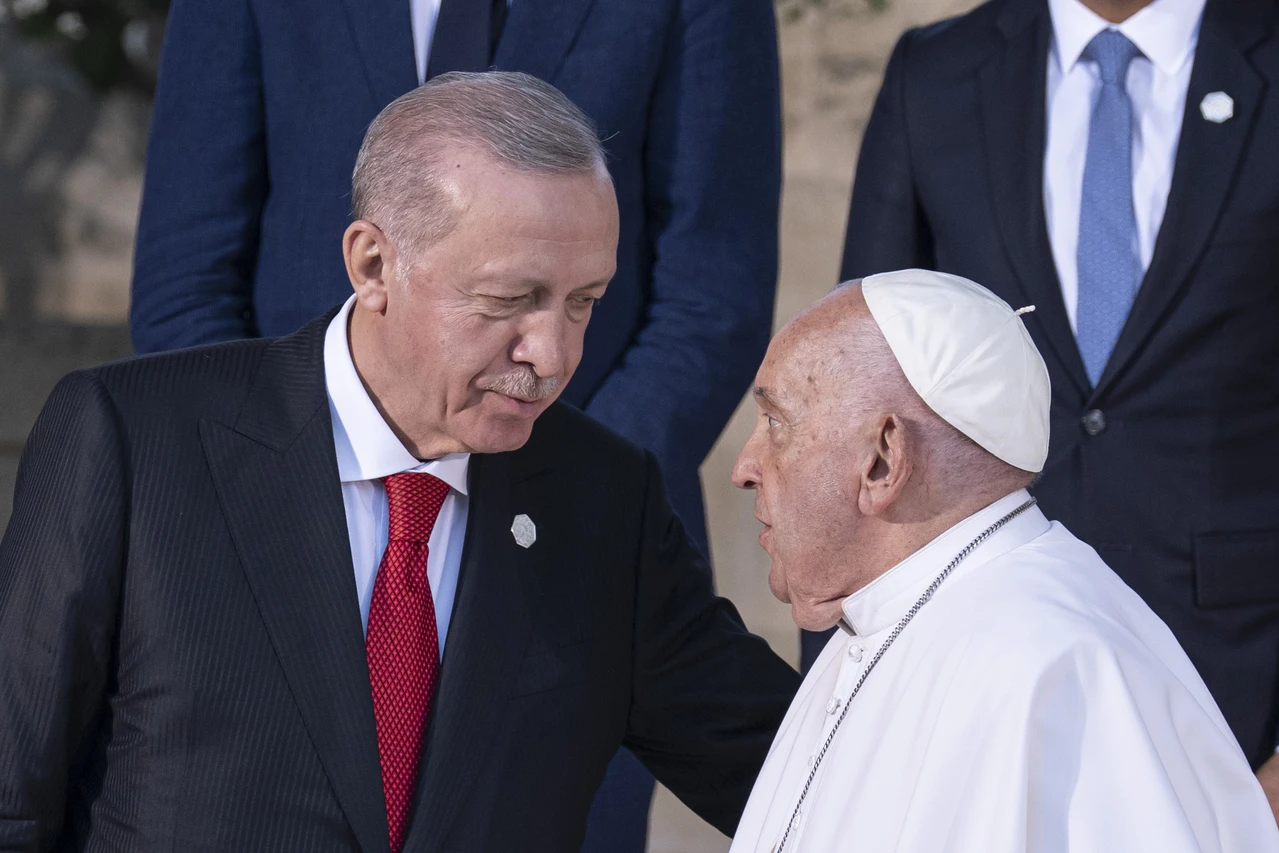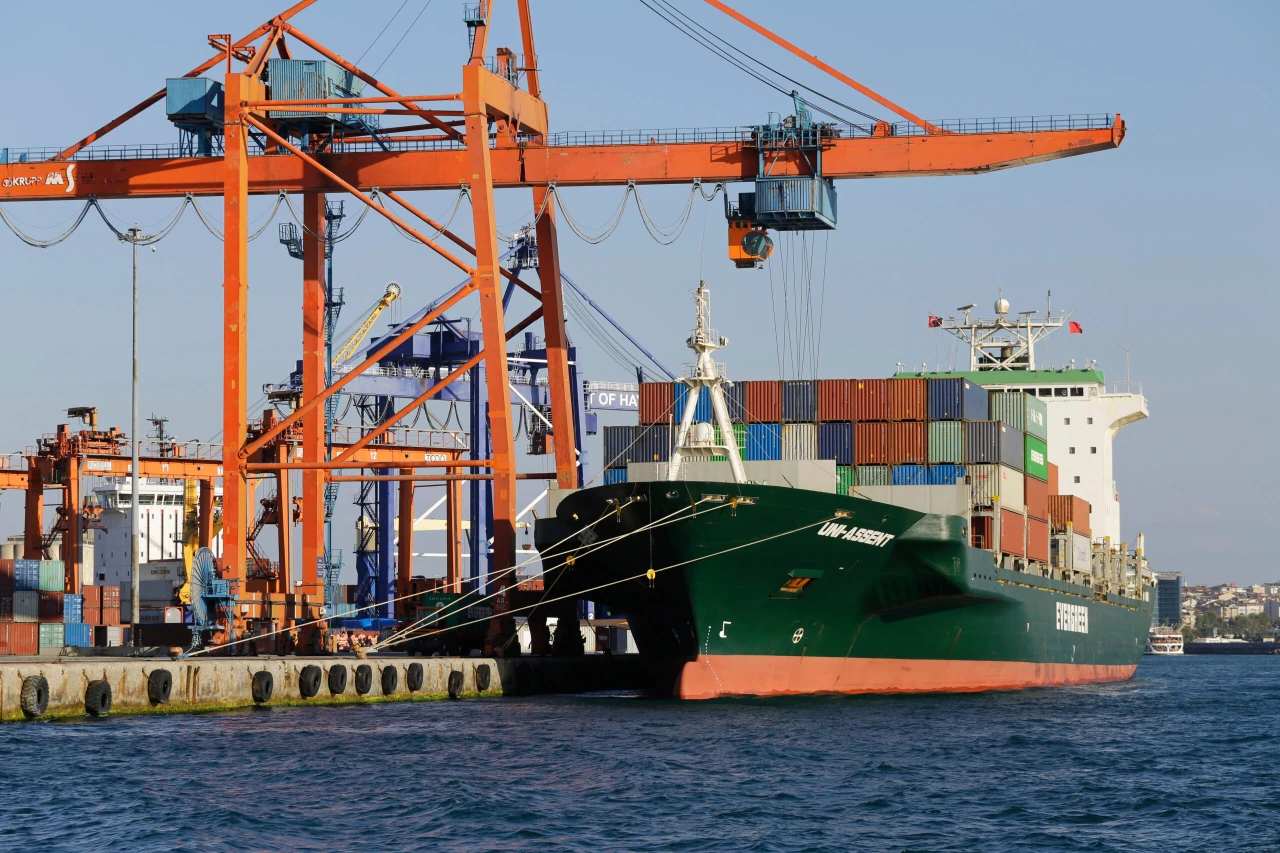Greece frustrated over Sissi’s visit to Türkiye
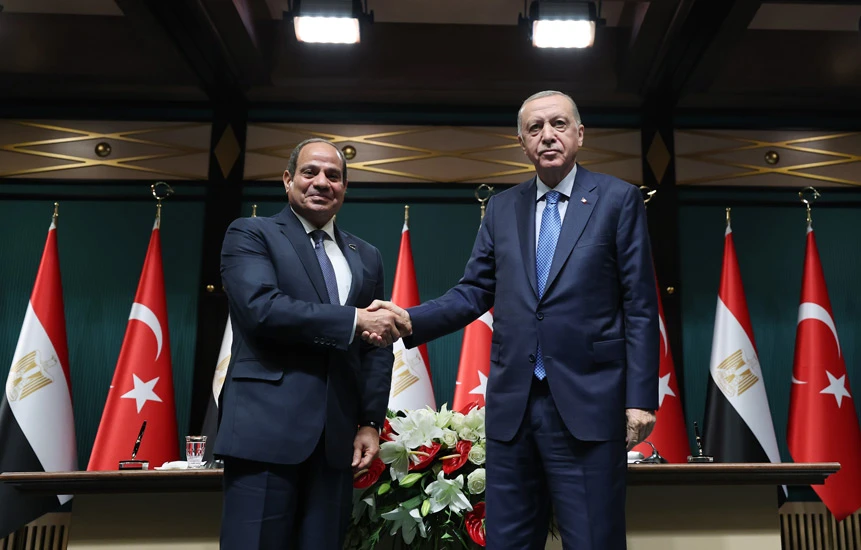 Turkish President Recep Tayyip Erdoğan made a statement at the joint press conference with Egyptian President al-Sisi. (Turkish Presidency Photo)
Turkish President Recep Tayyip Erdoğan made a statement at the joint press conference with Egyptian President al-Sisi. (Turkish Presidency Photo)
Many concerns expressed from Athens, following Egyptian President Abdel Fattah el-Sissi’s recent visit to Türkiye, signaling a thaw in relations between Cairo and Ankara after years of strained ties.
The visit and subsequent signing of 17 agreements, as well as a 36-point joint declaration, have led Greek diplomats to examine the implications for the region, particularly the Eastern Mediterranean.
‘Erdogan-Sissi meeting must have set off alarms in Athens’
Giorgos Gerapetritis, Greek Minister of Foreign Affairs, is set to discuss the visit with his Egyptian counterpart Badr Abdelatty during the United Nations General Assembly in New York this September.
The meeting is expected to focus on Egypt’s stance following its rapprochement with Türkiye and the potential impact on Greek-Egyptian relations.
The Greek Protothema newspaper underlined the discomfort caused by the meeting in Greece in a news article in which the two leaders signed 17 bilateral agreements. Stating that the agreements that came out of the meeting will further strengthen Türkiye’s hand in the region, the newspaper used critical words about the fact that Greece was not mentioned in the meeting, which will have important consequences.
The Erdogan-Sissi meeting must have set off alarms in Athens… At least, that’s what we assume. After 12 years, the Egyptian president visited Türkiye, and it wasn’t just a visit “for the sake of it” to confirm the warming of relations between the two countries. This was sealed with a series of agreements signed between Türkiye and Egypt.
Some of these agreements should greatly concern the Greek government. Which ones are they, and why?
Greek Professor Ioannis Mazis says to Naftemporiki TV
Greece’s Eastern Mediterranean concerns
Athens’ main concern centers on the possibility of a future agreement between Türkiye and Egypt regarding the delineation of maritime zones in the Eastern Mediterranean.
This development could undermine Greece’s 2020 partial agreement with Egypt on the delimitation of their maritime zones, which forms the basis of Greece’s claims in the region. Türkiye, however, has long contested the validity of the Greece-Egypt deal, deeming it “null and void.”
Greek officials are carefully watching the evolving dynamics between Cairo and Ankara to assess whether these developments will affect regional stability and Greece’s strategic interests in the Eastern Mediterranean.
Maritime zones in the Eastern Mediterranean
The declaration and delimitation of an Exclusive Economic Zone (EEZ) in the Eastern Mediterranean is crucial for the coastal states in the region because of several factors. The Mediterranean, with its unique geographical characteristics, already faces various maritime boundary disputes.
Türkiye has a coastline stretching 1,577 kilometers (979.9 miles) from Fethiye to Samandag on the Syrian border.
Egypt has become a key country in the Eastern Mediterranean after signing an EEZ delimitation agreement with Southern Cyprus in 2003.
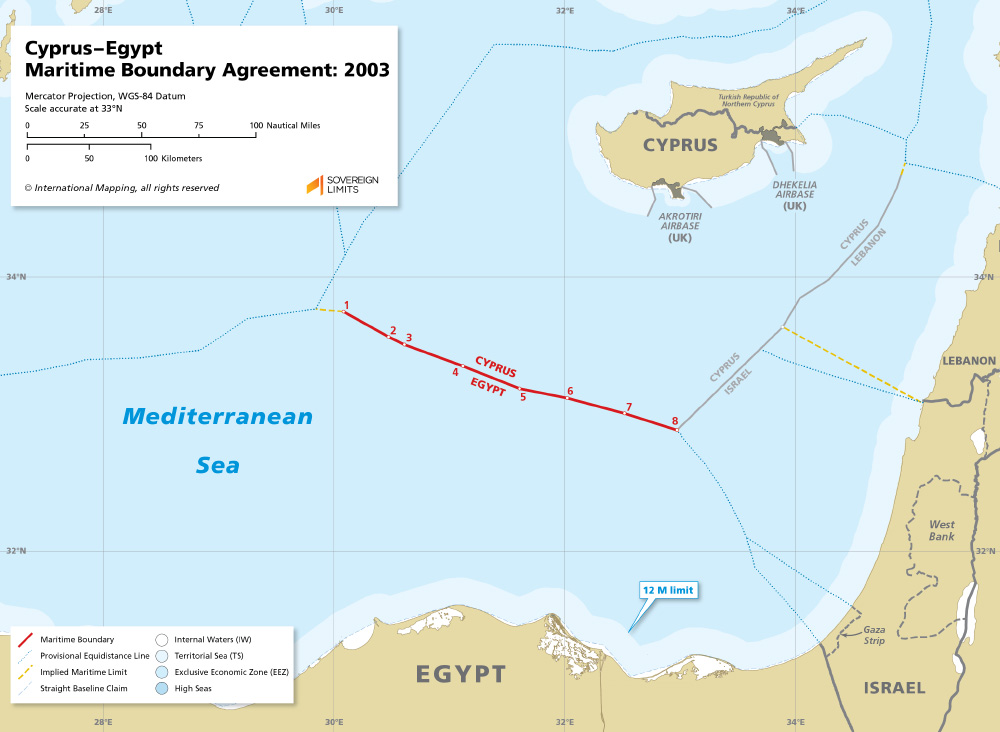
Türkiye has made it a foreign policy priority to develop bilateral relations with Egypt, the country with the second longest coastline in the Eastern Mediterranean, and eventually sign an EEZ delimitation agreement.
In 2019, Türkiye and Libya sealed a maritime demarcation deal for their boundaries in the eastern Mediterranean waters. Libya has been a key point of contention between Egypt and Türkiye over the years because of the countries’ political stances and the parties they support in Libya.
Over the years, with Türkiye’s normalization steps, Türkiye and Egypt have become key negotiators in the Libyan conflict to resolve Libya’s divided political structure.
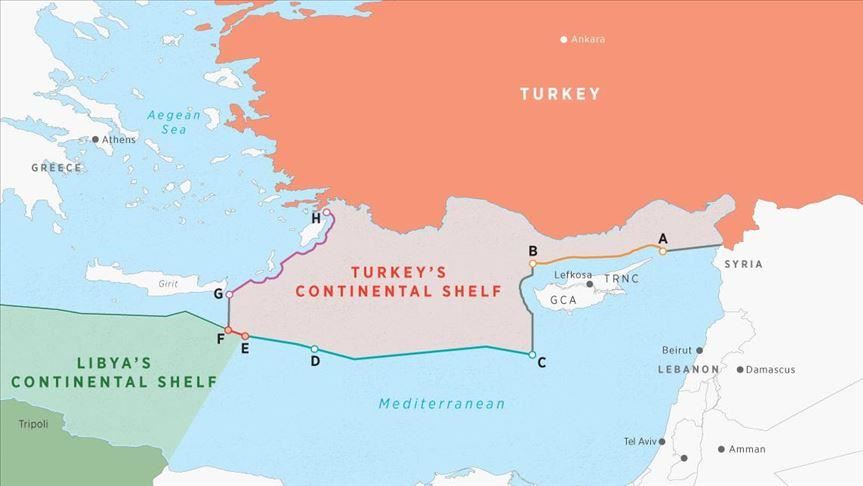
In response to Türkiye and Libya’s maritime agreement, Egypt and Greece signed an agreement in August 2020 establishing an EEZ between the two countries in the Eastern Mediterranean. Turkish Foreign Ministry released a statement during that time saying: “A maritime boundary between Greece and Egypt does not exist. Concerning Türkiye, the so-called maritime delimitation agreement signed today is null and void. This understanding will reflect on the ground and at the table.”
Libya has triggered many tensions in North Africa, sometimes to the point of confrontation. Who will dominate the Mediterranean and who will process and exploit the natural gas has become a major point of conflict. During these years, Egypt and Greece frequently organized military exercises and conducted joint training.
One prime example of the normalization was a statement by the former Egypt Foreign Minister Sameh Shoukri, in which he implicitly acknowledged that the Turkish-Libyan maritime delimitation agreement was in Cairo’s favor, despite Egypt’s public opposition to the deal.
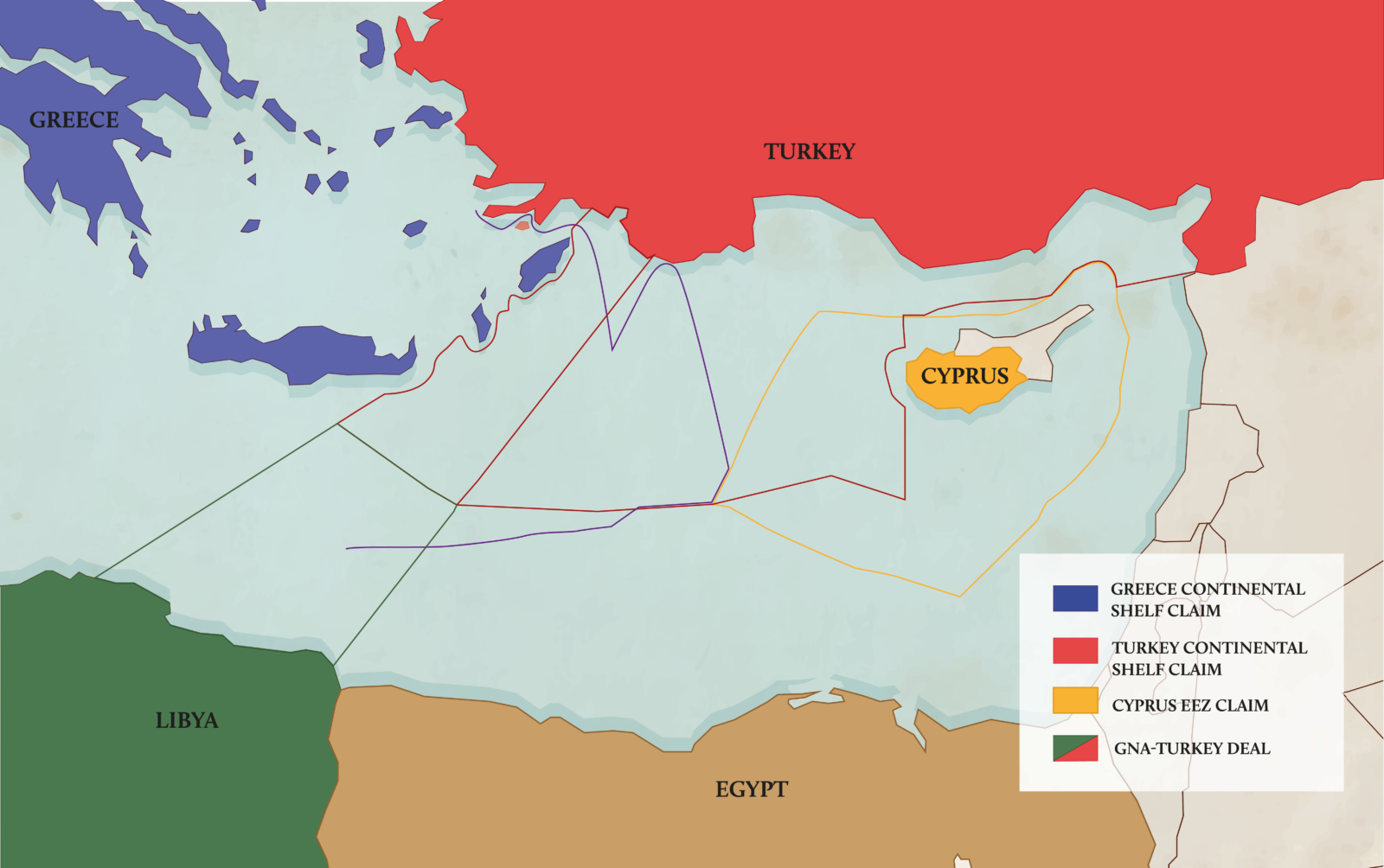
Now with normalization, the EEZ can be discussed between the two nations. A maritime agreement with Türkiye could add 21,500 square kilometers to Egypt’s EEZ agreement, creating opportunities for new energy exploration and foreign investment.
However, Egypt might find itself in a difficult position to maintain a policy of balance between Türkiye and Greece.

